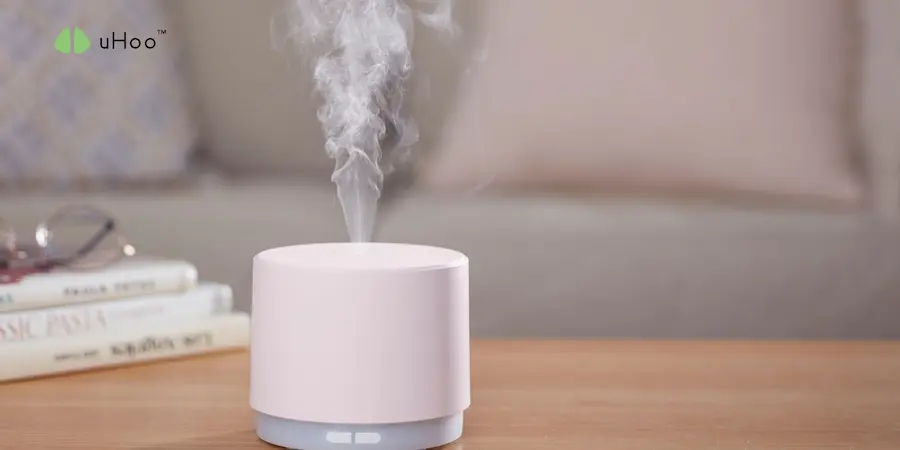When the weather turns cold, or when indoor heating kicks into high gear, the air inside your home can become dry and uncomfortable. This drop in humidity can lead to a range of issues, from dry skin and irritated sinuses to worsened allergies and asthma. One solution to combat dry indoor air is the use of a humidifier. These handy devices help restore moisture to the air, improving comfort and health. But how exactly do humidifiers work, and what benefits do they bring to your home? Let’s take a closer look.
What is a Humidifier?
A humidifier is a device that adds moisture to the air, increasing the humidity levels in a room. There are different types of humidifiers, including evaporative, ultrasonic, and impeller models. While they each use different methods to release moisture, they all serve the same purpose: to raise the humidity in a dry environment. Humidifiers can be particularly beneficial during the winter months when heating systems tend to dry out indoor air.
Why Humidity Matters
Humidity is the amount of water vapor in the air, and it plays a significant role in maintaining a healthy and comfortable indoor environment. The ideal indoor humidity level is typically between 30% and 50%. When humidity levels fall below this range, especially during the winter, you might start to notice dry skin, static electricity, and respiratory discomfort. This can also make your body more susceptible to colds, flu, and other illnesses.
In addition to the physical discomfort caused by dry air, low humidity can also exacerbate allergy and asthma symptoms. Dust, pollen, and pet dander can become more airborne in dry conditions, making it easier for these allergens to irritate your respiratory system.
Benefits of Using a Humidifier
- Relieve Dry Skin and Irritated Eyes
Dry air can suck the moisture from your skin, leaving it feeling tight, flaky, and irritated. It can also dry out your eyes, causing redness and discomfort. By adding moisture back into the air, a humidifier helps prevent these issues, keeping your skin and eyes hydrated and healthy.
- Soothe Dry Throats and Nasal Passages
A common issue in dry environments is the feeling of a scratchy throat or dry nasal passages. Humidifiers can help keep the mucous membranes in your nose and throat moist, which in turn helps prevent irritation and discomfort. This is especially helpful when you’re sick, as it can help clear nasal congestion and soothe a sore throat.
- Improve Sleep Quality
Dry air can make it difficult to sleep soundly, particularly if you suffer from conditions like snoring or dry mouth. By adding moisture to the air, a humidifier can help you breathe more easily at night, reduce congestion, and keep your throat from getting too dry. The improved airflow can lead to a more restful night’s sleep.
- Protect Wooden Furniture and Musical Instruments
Wooden furniture, floors, and musical instruments like guitars and pianos can crack and warp when exposed to very dry air. Maintaining proper humidity levels with a humidifier helps preserve the integrity of these items, preventing damage caused by the fluctuating moisture levels in the air.
- Ease Allergy and Asthma Symptoms
For those who suffer from allergies or asthma, dry air can make symptoms worse by causing the airway passages to become inflamed. By maintaining adequate moisture levels, a humidifier can help prevent this irritation and allow for easier breathing. Additionally, it can help reduce the presence of allergens, such as dust and pollen, which can thrive in dry environments.
Choosing the Right Humidifier
When selecting a humidifier, it’s important to consider the size of the space you want to humidify, the type of humidifier, and the features that suit your needs. Evaporative humidifiers are self-regulating and are ideal for larger spaces, while ultrasonic humidifiers use high-frequency sound waves to produce mist and are quieter, making them perfect for bedrooms. Impeller humidifiers use rotating disks to release moisture into the air, and central humidifiers are built into your home’s HVAC system for whole-house humidification.
It’s also important to regularly clean your humidifier to prevent mold and bacteria from growing in the water tank. Most manufacturers recommend cleaning your humidifier at least once a week to ensure it continues to function properly and doesn’t release harmful particles into the air.
Humidifiers are a simple but effective solution to combat the dryness of indoor air, especially during the colder months. They can provide numerous benefits, from improving your skin and respiratory health to promoting better sleep and reducing allergy symptoms. If you’re looking for an easy way to boost your comfort and wellness at home, a humidifier could be just what you need.
To take your indoor air quality to the next level, a uHoo air quality monitor can be a good companion alongside humidifiers. It helps track and maintain ideal humidity levels, ensuring you’re breathing the healthiest air possible.



